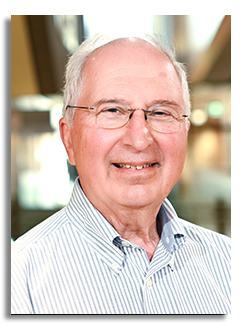
Click image for HiRes
Abstract
About 50% of cancer patients are treated successfully with radiation therapy. The quality of life of cancer patient is determined by accuracy of dose delivered to the target and sparing a normal tissue that require sophisticated radiation sensors for quality assurance of medical radiation.
The Centre for Medical Radiation Physics is an international leader in development of semiconductor radiation detectors for high spatial radiation dosimetry and microdosimetry where deposition of ionising energy by charged particles should be measured on a micron scale similar to size of nucleus in a cell.
Presentation will be focussed on development of Silicon On Insulator (SOI) microdosimeters with 3D sensitive volumes (SVs) mimicking the dimensions of cells in an array [1]. Several designs of high definition 3D SVs fabricated using 3D MEMS technology were implemented. 3D SVs were fabricated in different sizes and configurations with diameters between 18 and 30µm, thicknesses of 2-50 µm and pitch of 50 µm in matrixes of 20×20 and 50×50 SVs [2]. SVs were segmented into sub-arrays to reduce capacitance and avoid pile up in high dose rate pencil charged particle beam scanning applications and improving S/N ratio
Detailed TCAD simulations and charge collection studies in individual SVs have been performed using IBIC technology at heavy ion microprobe at ANSTO. The radiation hardness of SOI microdsimetres has been investigated in gamma and heavy ion radiation fields in terms of TID and DD and will be discussed.
Application of SOI microdosimeters in proton and heavy ion therapy and in radiation fields mimicking solar particle events (SPE) and Galactic Cosmic Rays (GCR) for evaluation of their radiobiological efficiency (RBE) for better treatment of the cancer and radiation protection of astronauts will be presented [3,4,5].
References:
[1] Rosenfeld A. “Novel detectors for silicon based microdosimetry, their concepts and applications”, Nucl. Instrum. Methods., Phys. Res. A 809, 156–170, February 2016.
[2] Linh T. Tran et. al., “Thin Silicon Microdosimeter utilizing 3D MEMS Technology: Charge Collection Study and its application in mixed radiation fields”, IEEE Transactions on Nuclear Science, Volume: 65, Issue: 1, 467-472, Jan. 2018.
[3] Linh T. Tran, et. al., “The relative biological effectiveness for carbon, nitrogen and oxygen ion beams using passive and scanning techniques evaluated with fully 3D silicon microdosimeters” Medical Physics, 2018, DOI10.1002/mp.12874.
[4] Linh T. Tran, et. al., “Characterisation of proton pencil-beam scanning using a high spatial resolution solid state microdosimeter”, Medical Physics, doi: 10.1002/mp.12563, 2017.
[5] S.Peracchi et al., “A solid-state microdosimeter for dose and radiation quality monitoring for astronauts in space”, IEEE Trans. On Nucl. Sci. NS-67(1), 169-174, 2020 DOI: 10.1109/TNS.2019.2943597
Click here to see all available video seminars.
Click here to go to the SPREE HOMEPAGE.
Brief Bio
Distinguished Professor Anatoly Rozenfeld is the Director and founder of CMRP, and is world renowned for his research work on semiconductor radiation detectors and their application for mini- and micro- dosimetry in radiation therapy, radiation protection, nuclear medicine and space sciences.
He is a member of numerous editorial boards and international advisory committees on Solid State Dosimetry, Micro-dosimetry, IEEE Radiation Instrumentation Steering Committee, IEEE NPSS Transnational Committee and local committees, including the Australian National Hadron Therapy Steering Committee, Prostate Cancer Institute, Australian HEP Executive Board and NHMRC Academy.
He has also established a strong research programme on proton and heavy iontherapy in Australia. Professor Rozenfeld is the founder of the biennial international workshops on Mini –Micro-Nano- Dosimetry and its Applications, and Modern Technology for Prostate Cancer Treatment, and was President of the Solid State Dosimetry (SSD 16) international conference in 2010 and General Chair of IEEE NSS MIC 2018 in Sydney. He served as Vice –Chair and Chair of International Solid State Dosimetry Organization (ISSDO). He is currently a Member of ICRU of Microdosimetry Report Committee and Space Medicine Committee of Australian Space Agency.
The Medical Radiation Physics research and educational programmes developed by Professor Rozenfeld at CMRP were recently recognised as being “above world standard” by the Australian Research Council – Excellence in Research for Australia (ERA) in 2015 and 2018.
Moreover, Professor Rozenfeld has published more than 400 articles, 5 chapters in books, holds 19 granted patents, attracted more than $17M competitive grants , and also delivered many keynotes, invited talks and seminars around the world. He is recipient of 2014 UOW Vice Chancellor Excellence Awards for Researcher of the Year and Award for Outstanding Achievements in Research Commercialization.
